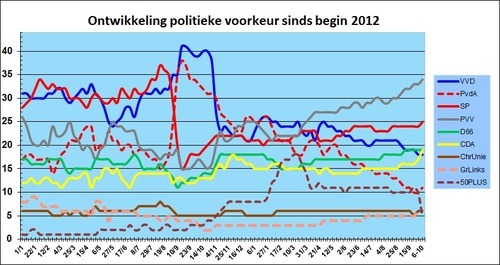ECFR/Social Europe/El Pais informs us that the Dutchies are planning on dismantling the welfare state:
The Dutch government’s recent announcement that the welfare state will be substituted by an undefined “participative society” may be the news story of the year — or at least deserves to be.
While this is terrible in and of itself, I’m a bit puzzled by the politics of it.
The current Dutch government is a VVD (Conservative Liberal – right wing of ALDE) and PvdA (Labour – PES) coalition. But what’s unusual is that the PvdA was in the 2012 election under real threat from the Socialist Party (a post-Maoist radical Social Democratic Party – GUE/NGL). In the end there was a late swing away from the Socialist Party and PvdA won 38 to the SP’s 15 seats.
However, during the election he PvdA won a lot of support from the SP effectively by adopting all their policies during the election.
I don’t follow Dutch politics closely but it would seem they have now not only turned their back on those electoral promises but ran the other way.
Recent polls show little support for the NL goverment’s polices. In July Dutch News reported:
Just one in five of the Dutch population backs the cabinet’s decision to go ahead with a €6bn austerity package next year, according to the latest Maurice de Hond opinion poll…
The government is being forced to make new cuts in order to meet eurozone budget deficit rules. However, some 50% think the coalition should not make any more spending reductions and 30% think less than €6bn is a better option.
And support for the government is collapsing according to recent polls.

However, as can be seen from the above graph, although support for the PvdA (dotted red line) has collapsed, support for the SP (solid red line) has not fully recovered from the election time swing against it. Instead, what we can see is a consistent and depressing rise is support for Geert Wilders very racist Partij Voor de Vrijheid (PVV) (solid grey line).
In short – FUCK!
Also, for anyone interested – useful article by Dan Finn in the NLR on the Dutch election.


